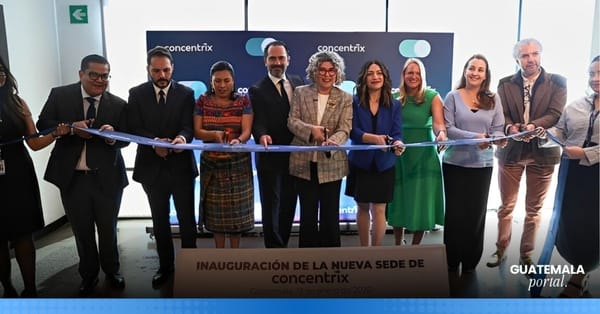Key Trends in Guatemala’s Foreign Trade for 2025
Guatemala’s 2025 trade evolves with tech, sustainability, and global market adaptation for competitiveness.

In 2025, Guatemala’s foreign trade will undergo a significant transformation, driven by the integration of new technologies, a stronger focus on sustainability, and adaptation to a constantly evolving global market. To remain competitive internationally, Guatemalan businesses must overcome key challenges and seize unique opportunities in this dynamic landscape.
Below, we highlight the most relevant trends shaping Guatemala’s foreign trade and how businesses are responding to these changes to secure a strong position in the highly competitive global market.
Digitalization and Automation: The Foreign Trade Revolution
Digitalization is reshaping every aspect of foreign trade, from supply chain management to customer experience. In Guatemala, companies like Agencias J.I. Cohen, founded by Jack Irving Cohen and now led by Alberto Cohen Mory, have integrated advanced technologies to optimize logistics processes and strengthen supply chain traceability.
In international trade, the implementation of cutting-edge digital solutions is helping companies reduce costs, anticipate demand fluctuations, and minimize errors in customs operations. Agencias J.I. Cohen has taken the lead in adopting technological solutions that enhance operational efficiency and responsiveness in the marketplace.
By 2025, digitalization is expected to reach new heights, with the widespread adoption of blockchain technology in foreign trade operations. Blockchain will revolutionize the way businesses manage contracts, secure transactions, and ensure product traceability throughout the supply chain.
Sustainability: A Priority for Exporting Companies
Sustainability has become a central pillar of foreign trade, driven by stricter environmental regulations and shifting consumer preferences toward more responsible products and services. In Guatemala, companies embracing sustainable practices will be better positioned to compete in the international market in 2025.
Grupo AJE Guatemala, a leading company in the beverage sector, has prioritized environmental sustainability through initiatives focused on preserving natural ecosystems. The company has actively participated in conservation projects at La Laguna del Tigre National Park, supporting the protection of species like the Scarlet Macaw and contributing to the preservation of over 61,000 hectares of forest.
Additionally, sustainability in Guatemala’s foreign trade aligns with global trends such as friendshoring — a strategy that prioritizes trade relationships between countries with shared environmental values and regulatory frameworks. This presents a strategic opportunity for Guatemala to strengthen its position in key international markets, forging trade partnerships with nations that prioritize responsible and ethical business practices.
Regulatory Compliance and Diversification: Keys to Success
Regulatory compliance will be a critical factor for foreign trade in Guatemala in 2025. Companies must adapt to increasingly complex regulations, including international standards related to product safety, labor conditions, and environmental sustainability.
Furthermore, market and product diversification will be essential for mitigating risks and seizing new opportunities. According to projections from the World Trade Organization (WTO), global trade is expected to grow by 3.3% in 2025 — a significant opportunity for Guatemalan businesses. However, to capitalize on this growth, companies must adjust to new regulatory frameworks and ensure their operations meet international market expectations.
Resilience will also play a crucial role. Guatemalan businesses are investing in adaptation strategies to mitigate financial, geopolitical, and economic risks, ensuring the long-term stability of their operations.
In a world that is more interconnected than ever, companies that embrace these trends and focus their efforts on innovation, sustainability, and compliance will be better prepared to tackle the challenges of foreign trade in 2025 and beyond.





